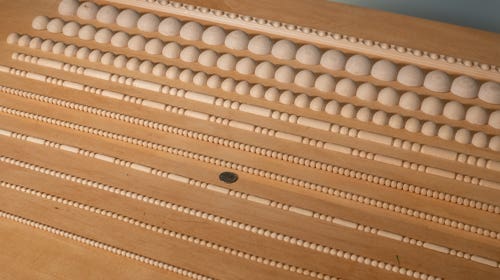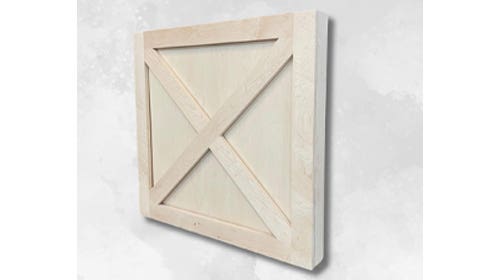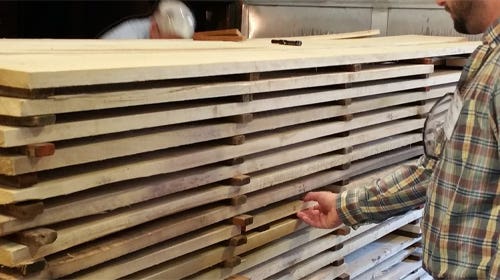The road from prison to craft exhibitors
The New Hampshire Furniture Masters Association is shaping the criminal justice system by providing incentives for the incarcerated to earn money and enjoy a livelihood. For a decade now, the…
The New Hampshire Furniture Masters Association is shaping the criminal justice system by providing incentives for the incarcerated to earn money and enjoy a livelihood. For a decade now, the NHFMA has offered the Furniture Masters' Prison Outreach Program to inmates within the New Hampshire prison system in Concord and Berlin.
{loadposition position10}
The program's success speaks for itself, as some participants have excelled to the point that their workmanship has been included in the NHFMA's annual exhibit and auction, and other esteemed craft shows.
"In addition to having an opportunity to build their character and confidence, these inmates have also donated the net proceeds of their auction sales to many worthy charities," says Terry Moore, director of the prison outreach program and founding member of the guild.
Moore explained that the program was started in 1999 with an invitation from Superior Court Judge Kathleen McGuire. It is done in conjunction with the Hobby Craft woodworking program, a state-sponsored rehabilitation initiative. Moore works with co-director Tom McLaughlin and other members of the NHFMA, going into the prisons about once a month to work with the inmates and teach them advance woodworking techniques. Moore says it is touching to see the inmates have goals for their projects, such as displaying them in the outlet gallery offered to them.
"Keep in mind that most of these guys have families on the outside. This is the only program that they're offered that they can actually earn money above the menial jobs like kitchen duty," says Moore.
Getting started wasn't an easy task. Moore and McLaughlin initially went into the prisons to assess the woodworking shops. While each had a great setup and decent tooling, the quality of the work was simplistic and needed improvement with more elaborate joinery, says Moore.
Moore and McLaughlin started working with the prison's two best students to assure their work would be included in the NHFMA's annual juried auction and exhibition. Other inmates watched the training sessions. The first piece was an Oriental-style cabinet made of solid mahogany with veneered crotch mahogany panels. The other was a Shaker hall table made of solid cherry with bird's-eye maple drawers. Interestingly, McGuire and former New Hampshire governor John Sununu underwrote those first two pieces so that they were pre-sold at the auction.
Now, the guild's members go into the prisons monthly, either for a four-hour evening session or a full-day Saturday session. There have been as many six inmate pieces juried into the NHFMA's annual auction.
Contrary to what one might expect, the program offers a fully equipped shop to inmates because of the administration's strict entry screening procedures and shop safety precautions. A behavioral incentive program, it requires inmates to have excellent behavior for at least a year before they can participate. The shop itself has shadow boards, in which all of the hand tools are strictly accounted for at the end of the day.
"Otherwise, they don't leave the shop if there's anything missing. If even a drill bit is missing, it's plainly evident and they lock down everything," says Moore.
Former inmate Donald Briere of North Hampton, who was released in March, is now an expert at making segmented turned vases with help from the program. In August, Briere entered the League of New Hampshire Craftmen's annual Sunapee Craft Fair in Newbury, N.H., and won Best in Show, selling the vase on the spot, along with several other pieces. Before prison, Briere was a home builder by trade and had done little woodworking.
"I thought furniture making would be kind of simple knowing I could build big houses, but come to find out it wasn't all that easy because precision and patience are a big requirement in order to do fine furniture. And that's when [Moore and McLaughlin] came in. When they had a seminar at the prison, they taught us about doing quality work, which meant slow down, take your time and concentrate on your cuts."
"The thing needed most by inmates is consistency from us as mentors. They look up to us as successful woodworkers in our own right," says Moore.
Contact: NHFMA, P.O. Box 5733, Manchester, NH 03108. Tel: 603-898-0242. www.furnituremasters.org
This article originally appeared in the January 2010 issue.







